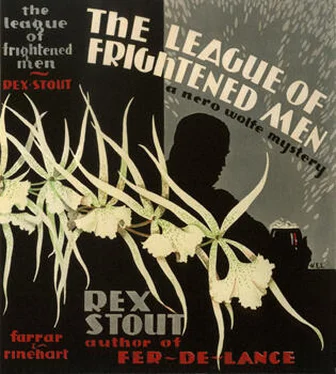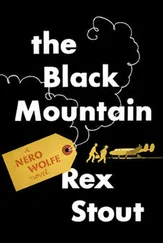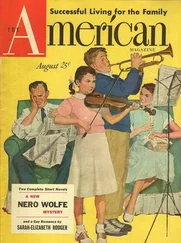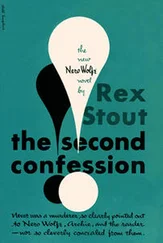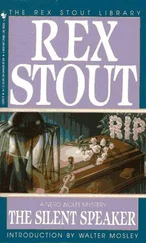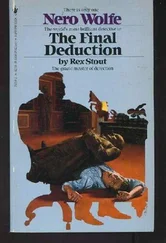Rex Stout - The League of Frightened Men
Здесь есть возможность читать онлайн «Rex Stout - The League of Frightened Men» весь текст электронной книги совершенно бесплатно (целиком полную версию без сокращений). В некоторых случаях можно слушать аудио, скачать через торрент в формате fb2 и присутствует краткое содержание. Год выпуска: 1935, Издательство: Farrar & Rinehart, Жанр: Детектив, на английском языке. Описание произведения, (предисловие) а так же отзывы посетителей доступны на портале библиотеки ЛибКат.
- Название:The League of Frightened Men
- Автор:
- Издательство:Farrar & Rinehart
- Жанр:
- Год:1935
- ISBN:нет данных
- Рейтинг книги:5 / 5. Голосов: 1
-
Избранное:Добавить в избранное
- Отзывы:
-
Ваша оценка:
- 100
- 1
- 2
- 3
- 4
- 5
The League of Frightened Men: краткое содержание, описание и аннотация
Предлагаем к чтению аннотацию, описание, краткое содержание или предисловие (зависит от того, что написал сам автор книги «The League of Frightened Men»). Если вы не нашли необходимую информацию о книге — напишите в комментариях, мы постараемся отыскать её.
The League of Frightened Men — читать онлайн бесплатно полную книгу (весь текст) целиком
Ниже представлен текст книги, разбитый по страницам. Система сохранения места последней прочитанной страницы, позволяет с удобством читать онлайн бесплатно книгу «The League of Frightened Men», без необходимости каждый раз заново искать на чём Вы остановились. Поставьте закладку, и сможете в любой момент перейти на страницу, на которой закончили чтение.
Интервал:
Закладка:
I told him. “A thing at the Harvard Club, in a little room off the smoking-room. It seems that the members all play tunes on it whenever the spirit moves them. The good thing about this is that it narrows it down, it rules out all Yale men and other roughnecks. You can see Chapin wanted to make it as simple as possible.”
Wolfe’s low murmur was in my ear: “Excellent.”
“Yeah. One of the facts you wanted. Swell.”
“No, Archie. I mean it. This will do nicely. I told you, proof will not be needed in this case, facts will do for us. But we must be sure beyond peradventure of the facts. Please find someone willing to favor us who is a member of the Harvard Club — not one of our present clients. Perhaps Albert Wright would do; if not him, find someone. Ask him to go to the club this morning and take you as a guest. On that typewriter make a copy — no. Not that. There must be no hole for Mr. Chapin to squirm through, should he prove more difficult than I anticipate. In spite of his infirmity, he is probably capable of carrying a typewriter. Do this: after making arrangements for a host, purchase a new typewriter — any good one, follow your fancy — and take it with you to the club. Bring away the one that is there and leave the new one; manage it as you please, by arrangement with the steward, by prestidigitation, whatever suggests itself. With, however, the knowledge of your host, for he must be qualified to furnish corroboration, at any future time, as to the identity of the machine you remove. Bring it here.”
“A new typewriter costs one hundred dollars.”
“I know that. It is not necessary to speak of it.”
“Okay.”
I hung up and reached for the telephone book.
That was how it happened that at ten o’clock that Friday morning I sat in the smoking-room of the Harvard Club with Albert Wright, a vice-president of Eastern Electric, drinking vermouth, with a typewriter under a shiny rubberized cover on the floor at my feet. Wright had been very nice, as he should have been, since about all he owed to Wolfe was his wife and family. That was one of the neatest blackmailing cases... but let it rest. It was true that he had paid Wolfe’s bill, which hadn’t been modest, but what I’ve seen of wives and families has convinced me that they can’t be paid for in cash; either they’re way above any money price that could be imagined or they’re clear out of sight in the other direction. Anyway, Wright had been nice about it. I was saying:
“This is it. It’s that typewriter in there that I showed you the number of and had you put a scratch under it. Mr. Wolfe wants it.”
Wright raised his brows. I went on:
“Of course you don’t care why, but if you do maybe he’ll tell you some day. The real reason is that he’s fond of culture and he don’t like to see the members of a swell organization like the Harvard Club using a piece of junk like that in there. I’ve got a brand new Underwood.” I touched it with my toe. “I just bought it, it’s a new standard machine. I take it in there and leave it, and bring away the junk, that’s all. If anyone sees me I am unconcerned. It’s just a playful lark; the club gets what it needs and Mr. Wolfe gets what he wants.”
Wright, smiling, sipped his vermouth. “I hesitate chiefly because you had me mark the junk for identification. I would do about anything for Nero Wolfe, but I would dislike getting in a mess and having the club dragged in too, perhaps. I suppose you couldn’t offer any guarantees on that score?”
I shook my head. “No guarantees, but knowing how Mr. Wolfe is arranging this charade I’d take you on a thousand to one.”
Wright sat a minute and looked at me, and then smiled again. “Well, I have to get back to the office. Go on with your lark. I’ll wait here.”
There was nothing to it. I picked up the Underwood and walked into the alcove with it and set it down on the desk. The public stenographer was there only ten feet away, brushing up his machine, but I merely got too nonchalant even to glance at him. I pulled the junk aside and transferred the shiny cover to it, put the new one in its place, and picked up the junk and walked out. Wright got up from his chair and walked beside me to the elevator.
On the sidewalk, at the street entrance, Wright shook hands with me. He wasn’t smiling; I guessed from the look on his face that his mind had gone back four years to another time we shook hands. He said, “Give Nero Wolfe my warmest regards, and tell him they will still be warm even if I get kicked out of the Harvard Club for helping to steal a typewriter.”
I grinned. “Steal my eye, it nearly broke my heart to leave that new Underwood there.”
I carried my loot to where I had parked the roadster on Forty-fifth Street, put it on the seat beside me, and headed downtown. Having it there made me feel like we were getting somewhere. Not that I knew where, but Wolfe either did or thought he did. I didn’t very often get really squeamish about Wolfe’s calculations; I worried, all right, and worked myself into a stew when it seemed to me that he was overlooking a point that was apt to trip us up, but down in my heart I nearly always knew that anything he was missing would turn out in the end to be something we didn’t need. In this case I wasn’t so sure, and what made me not so sure was that damn cripple. There was something in the way the others spoke about him, in the way he looked and acted that Monday night, in the way those warnings sounded, that gave me an uneasy idea that for once Wolfe might be underrating a guy. That wasn’t like him, for he usually had a pretty high opinion of the people whose fate he was interfering with. I was thinking that maybe the mistake he had made in this case was in reading Chapin’s books. He had definite opinions about literary merit, and possibly having rated the books pretty low, he had done the same for the man who wrote them. If he was rating Chapin low, I was all ready to fall in on the other side. For instance, here beside me was the typewriter on which the warnings had been written, all three of them, no doubt about it, and it was a typewriter to which Paul Chapin had had easy and constant access, but there was no way in the world of proving that he had done it. Not only that, it was a typewriter to which most of the other persons connected with the business had had access too. No, I thought, as far as writing those warnings went, nearly anything you might say about Chapin would be underrating him.
When I got to the house it wasn’t eleven o’clock yet. I carried the typewriter to the hall and put it down on the stand while I removed my hat and coat. There was another hat and coat there; I looked at them; they weren’t Farrell’s; I didn’t recognize them. I went to the kitchen to ask Fritz who the visitor was, but he wasn’t there, upstairs probably, so I went back and got the typewriter and took it to the office. But I didn’t get more than six feet inside the door before I stopped. Sitting there turning over the pages of a book, with his stick leaning against the arm of his chair, was Paul Chapin.
Something I don’t often do, I went tongue-tied. I suppose it was because I had under my arm the typewriter he had written his poems on, though certainly he couldn’t recognize it under the cover. But he could tell it was a typewriter. I stood and stared at him. He glanced up and informed me politely:
“I’m waiting for Mr. Wolfe.”
He turned another page in the book, and I saw it was Devil Take the Hindmost , the one Wolfe had marked things in. I said:
“Does he know you’re here?”
“Oh yes. His man told him some time ago. I’ve been here,” he glanced at his wrist, “half an hour.”
There hadn’t been any sign of his noticing what I was carrying. I went over and put it down on my desk and shoved it to the back edge. I went to Wolfe’s desk and glanced through the envelopes of the morning mail, the corner of my eye telling me that Chapin was enjoying his book. I brushed off Wolfe’s blotter and twisted his fountain pen around. Then I got sore, because I realized that I wasn’t inclined to go and sit at my desk, and the reason was that it would put me with my back to Paul Chapin. So I went there and got into my chair and got some plant records from the drawer and began looking at them. It was a damn funny experience; I don’t know what it was about that cripple that got under my skin so. Maybe he was magnetic. I actually had to clamp my jaw to keep from turning around to look at him, and while I was trying to laugh it off ideas kept flashing through my mind such as whether he had a gun and if so was it the one with the hammer nose filed down. I had a good deal stronger feeling of Paul Chapin, behind me, than I’ve had of lots of people under my eyes and sometimes under my hands too.
Читать дальшеИнтервал:
Закладка:
Похожие книги на «The League of Frightened Men»
Представляем Вашему вниманию похожие книги на «The League of Frightened Men» списком для выбора. Мы отобрали схожую по названию и смыслу литературу в надежде предоставить читателям больше вариантов отыскать новые, интересные, ещё непрочитанные произведения.
Обсуждение, отзывы о книге «The League of Frightened Men» и просто собственные мнения читателей. Оставьте ваши комментарии, напишите, что Вы думаете о произведении, его смысле или главных героях. Укажите что конкретно понравилось, а что нет, и почему Вы так считаете.
